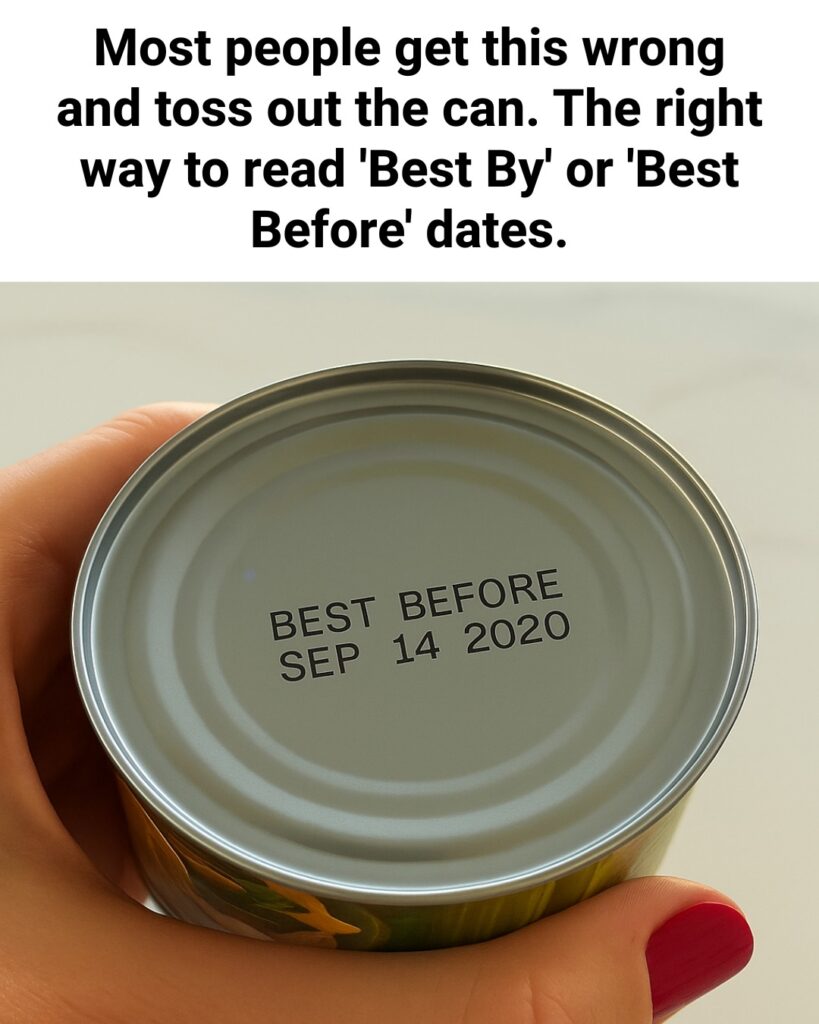
Most kitchens have a forgotten can of beans, soup, or vegetables tucked away in the pantry. When people see the expiration date has passed, their first instinct is to throw it out. But is that really necessary? The truth is that most dates on canned foods indicate quality, not safety.
“Best By” or “Best Before” refers to peak flavor and texture. “Use By” is common on perishable items like dairy or meat and marks best quality rather than a hard safety deadline. So, a slightly past-date can may still be safe to eat. Properly stored canned foods—kept in a cool, dry place away from sunlight—often last far beyond their printed date.
High-acid foods like tomatoes or citrus are best within 12–18 months, while low-acid foods like beans, corn, and canned meats can last three to five years or longer. As the USDA notes, if a can is intact and undamaged, it may remain safe indefinitely, though taste and texture may decline.
Warning signs of spoilage include bulging lids, leaks, rust, deep dents, odd smells, discoloration, or spurting liquid when opened. If any of these appear, discard the can immediately. Understanding these facts helps reduce unnecessary waste, save money, and stretch your food storage effectively. Before tossing a can, inspect it carefully. If it looks and smells normal, it may still be a safe and convenient meal. Smart handling of canned foods benefits both your pantry and the environment.